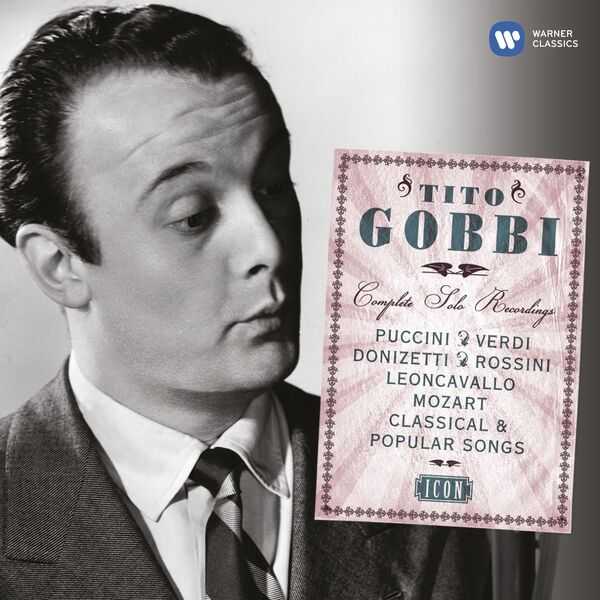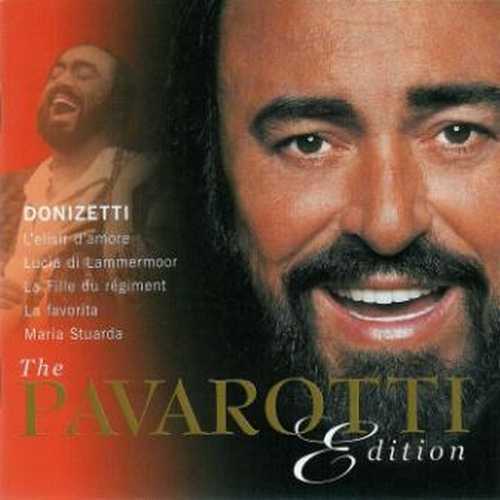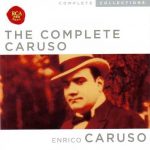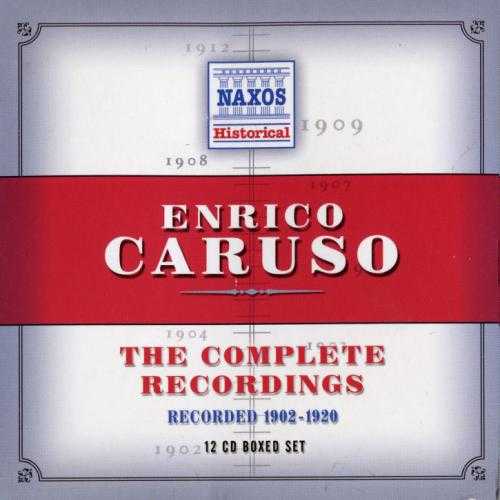
Performer: Tito Gobbi
Number of Discs: 5
Format: FLAC (tracks)
Label: Warner
Catalogue: 4553782
Release: 2010
Size: 1.45 GB
Recovery: +3%
Scan: cover
CD 01
01. L’arlesiana, Act 1 Scene 1: “Come due tizzi accesi” (Baldassare)
02. Zazà, Act 2: “Buona Zazà del mio buon tempo” (Cascart)
03. Zazà, Act 4: “Zazà, piccola zingara” (Cascart)
04. Don Giovanni: Deh vieni alla finestra
05. Don Carlo: Convien qui dirci addio! – Per me giunto
06. Don Carlo: O Carlo, ascolta (Act IV)
07. La fanciulla del West: Minne, dalla mia casa son partito
08. Musica Proibita
09. Famme sunn’a cu’tte
10. Otello, Act 2 Scene 5: “Era la notte, Cassio dormìa” (Jago)
11. Il barbiere di Siviglia: Largo al factotum
12. Pagliacci: Si può?
13. Torna!
14. ‘A vucchella
15. Occhi di fata
16. Dicitencello vuje
17. La forza del destino, Act 3 Scene 5: Aria, “Urna fatale del mio destino” (Don Carlo)
18. Otello: Vanne! – Credo in un crudel
19. Le nozze di Figaro, K. 492, Act 1 Scene 8: No. 9, Aria, “Non più andrai, farfallone amoroso” (Figaro)
20. Le Nozze di Figaro, K. 492, Act IV: Aprite un po’ quegl’occhi
21. La montanara (from the film The Glass Mountain)
22. Take the sun
CD 02
01. Gondoliera veneziana
02. Amuri, amuri
03. La traviata: Di Provenza il mar
04. Rigoletto: Pari siamo!
05. Macbeth, Act IV, Scene 3: Pietà, rispoetto, amore
06. Un Ballo in Maschera, Act III, Scene 1: Alzati! là tuo figlio (Renato)
07. Santa Lucia
08. ‘O sole mio
09. Marechiare
10. Fenesta che lucive
11. Canzoni a due voci: Nenia d’amore
12. La Damnation de Faust: Chanson de la puce
13. Guillaume Tell: Guglielmo, sol per te – La valanga
14. Guillaume Tell: Resta immobile
15. Otello: Vanne! – Credo in un Dio crudel
16. Nabucco, Act 4 Scene 1: “Ah! prigioniero io sono – Dio di Giuda” (Nabucco)
17. Macbeth, Act 4 Scene 5: Scena ed Aria, “Perfidi! All’anglo contro me v’unite! … Pietà, rispetto, amore” (Macbeth)
18. Falstaff: Quand’ero paggio
19. Andrea Chénier, Act 3: “Nemico della Patria?!” (Gérard, L’Incredibile)
20. Fedora: La donna russa
CD 03
01. Adriana Lecouvreur: Ecco il monologo
02. I gioielli della Madonna, Act 2: Serenade, “Aprila, bella, la fenestrella” (Rafaele)
03. La fanciulla del West, Act 1: “Minnie, dalla mia casa son partito” (Rance)
04. Guillaume Tell: Resta immobile
05. L’elisir d’amore: Come Paride vezzoso
06. Simon Boccanegra: Plebe! Patrizi!
07. Otello: Vanne! – Credo in un Dio crudel
08. Falstaff: Quand’ero paggio
09. Adriana Lecouvreur: Ecco il monologo
10. Fedora: La donna russa
11. Xerse: Beato chi può
12. Piango, gemo, sospiro, RV 675: “Piango, gemo”
13. Vittoria, vittoria mio core
14. Vergin, tutto amor preghiera
15. Caro mio ben
16. La molinara: Nel cor più non mi sento
17. Tre giorni son che Nina (Formerly Attributed to Pergolesi)
18. Il Pompeo: Aria. “O cessate di piagarmi”
19. Orfeo: Rosa del Ciel
20. Fenesta che lucive
21. Santa Lucia
22. Silenzio cantatore
23. La montanara
24. Piscatori ‘e Pusilleco
25. O mia bella Madonnina
26. Mattinata fiorentina
27. Gondoliera veneziana
28. Amuri, amuri
29. Musica Proibita
30. Nebbie
31. Canzoniere, Op. 17: Se gli alberi potessin favellar
CD 04
01. Malia
02. Donna, vorrei morir
03. ‘A vucchella
04. Ideale
05. Serenata
06. Commiato
07. Visione veneziana
08. Serenata
09. Occhi di fata
10. Biondina in gondoletta
11. Lucia di Lammermoor, ATTO PRIMO, Scena prima: Cruda, funesta smania (Enrico/Normanno/Raimondo)
12. Lucia di Lammermoor, ATTO PRIMO, Scena prima: La pietade in suo favore (Enrico/Raimondo/Coro)
13. Lucia di Lammermoor: Che fia?- Se tradirmi tu potrai
14. L’elisir d’amore, Act 2 Scene 3: No. 7, Scena, “La donna è originale – Venti scudi” (Nemorino, Belcore)
15. Rigoletto, Act 1 Scene 8: No. 4a, Scena, “Pari siamo! – io la lingua, egli ha il pugnale” (Rigoletto)
16. Rigoletto, Act I, Scene 2: Figlia! – Mio padre! (Rigoletto/Gilda)
17. Rigoletto, Act I, Scene 2: Ah! veglia, o donna (Rigoletto/Gilda)
18. Povero Rigoletto – Cortigiani, vil raza dannata
19. Della vendetta alfin giunge l’instant! – Lassù in cielo
CD 05
01. Simon Boccanegra, Act 1 Scene 7: “Dinne, alcun là non vedesti? – Figlia! A tal nome palpito” (Doge, Amelia)
02. Aida, Act III: Duetto – Ciel! mio padre! – Rivedrai le foreste imbalsamate
03. Don Carlo, Act 1 Scene 1: “Questo arcano – Dio, che nell’alma infondere” (Rodrigo, Don Carlo) (1884 Milan Four-Act Version)
04. Don Carlo, Act 3 Scene 2: “Per me giunto è il dì supremo” (Rodrigo) (1884 Milan Four-Act Version)
05. Don Carlo, Act 3 Scene 2: “O Carlo, ascolta – La madre t’aspetta” (Rodrigo) (1884 Milan Four-Act Version)
06. Tosca, Act 1 Scene 9: “Tre sbirri, una carrozza” (Scarpia, Spoletta, Chorus)
07. Tosca, Act 2 Scene 1: “Tosca è un buon falco!” (Scarpia, Sciarrone)
08. Tosca: La povera mia cena fu interrota (Act II)
09. Il tabarro: “Nulla! Silenzio!” (Michele)
10. Il Barbiere di Siviglia, Act One, Scene One: La ran la le ra – Largo al factotum (Figaro)
11. Il barbiere di Siviglia: All’idea di quel metallo
12. Il barbiere di Siviglia: Dunque io son
13. Pagliacci, Prologue: “Si può? Si può?” (Tonio)
14. Gianni Schicchi: Ladro! – Via! Via! – Lauretta mia – Ditemi voi, signori
15. Falstaff, Act 1: “L’onore! Ladri ! Io stesso, sì, io, io” (Falstaff)
This 5 CD set, devoted to the outstanding Italian baritone Tito Gobbi, is a further release in the EMI Classics ICON series. The bulk of this set is devoted to all the solo recordings that Gobbi made during his entire career, brought together for the first time.
The first CD begins with seven operatic arias (by Cilea, Leoncavallo, Mozart, Verdi and Puccini), and two songs (‘Musica proibita’ by Gastaldon and ‘Famme sunn’a cu’tte’ by Ruccione) that Gobbi made for the Italian branch of EMI in 1942. The songs were released only in Italy on a 78rpm record that had extremely limited circulation because of the Second World War, and are re-issued here by EMI for the first time.
The programme continues on CD 1 with further recordings that Gobbi made for EMI from 1948 onwards of operatic arias and songs, including two songs (‘La montanara’ and ‘Take the Sun’) that were featured in the 1949 film The Glass Mountain that brought the baritone to a wide cinema audience. He eventually appeared in more than 20 films.
CD 2 contains the rest of the songs and arias made up to the end of the 78rpm era, and finishes with the song ‘Nenia d’amore’ recorded in Italy in 1953 for the film Canzoni a due voci.
In 1955, Gobbi made his first LP recital album (with the forces of the Rome Opera), but it was not released at the time due to concerns about the technical quality of the recording. With the advance of technology the problems were subsequently able to be corrected and Gobbi later gave permission for material from the album to be released in various LP collections. The whole album is now heard here complete for the first time.
In 1964, EMI made a two-LP set called The Art of Tito Gobbi in which each of the four LP sides was devoted to a different genre, namely Operatic Arias, Classical Songs and Arias, Italian and Neapolitan Popular Songs, and Romantic Songs. The programme repeated some of the repertoire on the as yet unpublished 1955 album but ranged much more widely, especially in the field of song. The operatic arias were made with the Philharmonia Orchestra under Alberto Erede; the classical songs with a small chamber ensemble consisting of harpsichord, cello and guitar; the popular songs with members of the Orchestra of the Rome Opera, and the romantic songs with the distinguished pianist Gerald Moore. This project marked the end of Gobbi’s recording career in solo repertoire.
The rest of the set covers extracts from some of the acclaimed complete opera recordings that Gobbi made for EMI, including Lucia di Lammermoor, Tosca, Aida and Rigoletto with the legendary soprano Maria Callas. Other operas featured are L’elisir d’amore, Simon Boccanegra, Don Carlo, Aida, Il tabarro, Il barbiere di Siviglia, Pagliacci and Gianni Schicchi. The programme ends with a memorable reminder of one of Gobbi’s finest assumptions, the title role in Verdi’s sublime Falstaff.


